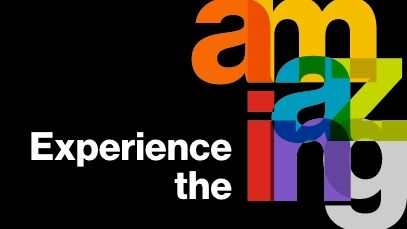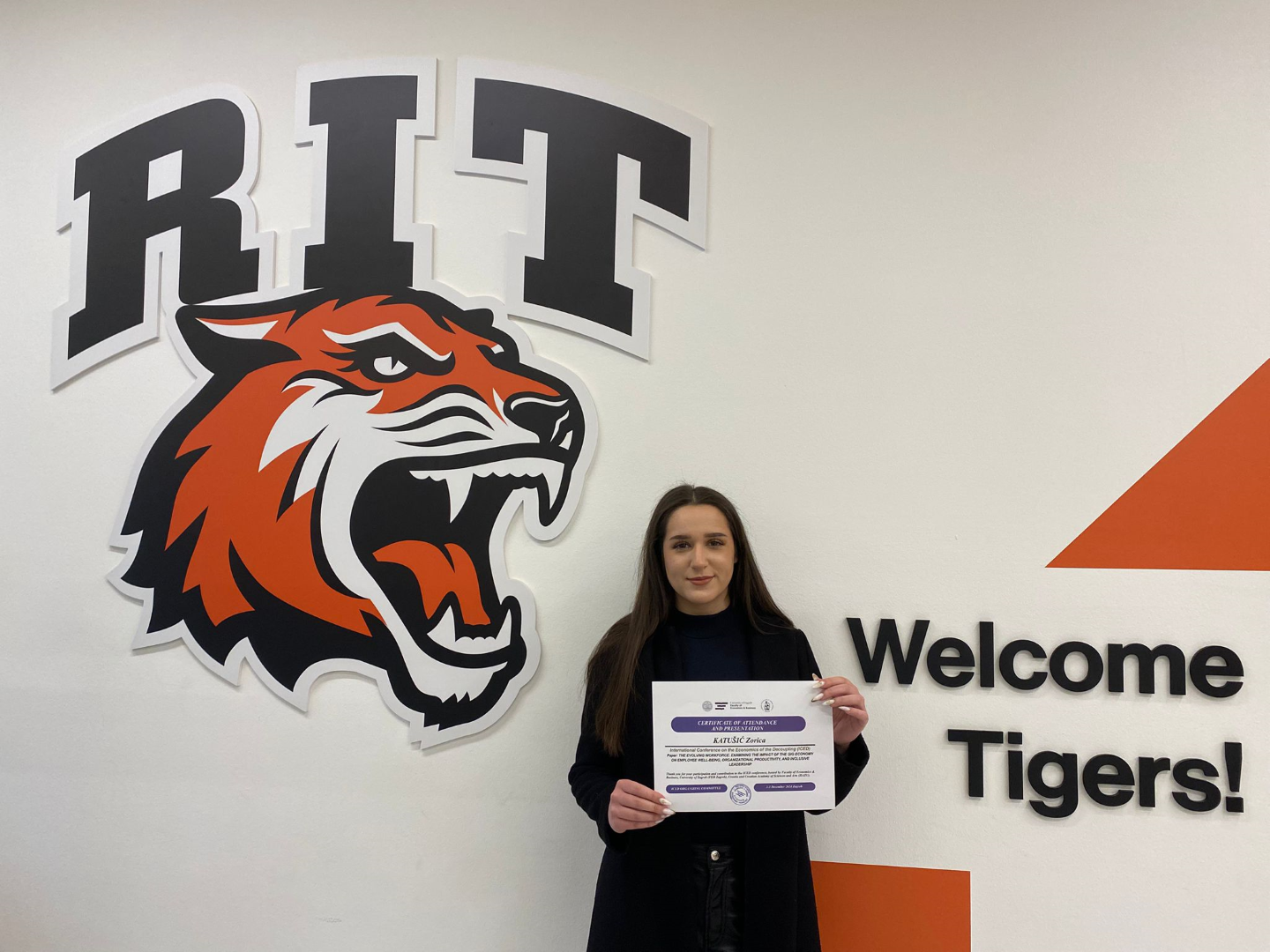Exploring the Gig Economy: Zorica Katušić presented her research at ICED
Zorica Katušić, a sophomore at RIT Croatia's Zagreb campus, recently presented her research on the evolving gig economy, titled “The Evolving Workforce: Examining the Impact of the Gig Economy on Employee Well-Being, Organizational Productivity, and Inclusive Leadership,” at the International Conference on the Economics of Decoupling (ICED). The Conference seeks to bring together researchers and professionals to share their studies and engage in discussions about the latest challenges in the economics of decoupling. As a Global Business Management student and a Supply Chain Specialist – Production Planner at Rimac Technology, Zorica blends academic knowledge with professional experience.
Findings of Zorica's research for the gig economy
The gig economy is a labor market where temporary or freelance work is more common than traditional full-time, permanent employment. “The gig economy caught my interest because of how digital platforms are changing work,” Zorica explained. Having experienced the benefits and challenges of gig work firsthand, Zorica wanted to explore the broader implications of this rapidly growing sector. Her personal experience, combined with her academic curiosity, led her to investigate how gig work affects employee well-being, organizational productivity, and leadership practices.
Zorica was intrigued by how digital platforms have transformed the nature of work, offering flexibility but also introducing new challenges, such as financial instability, lack of employee protection, and limited job security. These challenges, along with the rise of algorithmic management, prompted Zorica to explore how leadership could address these issues to foster a more inclusive and supportive work environment.
Zorica’s research highlighted several key insights into the gig economy. While gig work offers flexibility and autonomy, these advantages are often overshadowed by challenges such as inconsistent income, a lack of healthcare or retirement benefits, and job insecurity. One of the most striking findings was the impact of algorithmic management. Zorica explained how “algorithmic management improves efficiency but can undermine workers’ autonomy”. Addressing these issues requires innovative leadership strategies that prioritize inclusivity, transparency, and fairness.
Engaging in research is important for students
Through her research and presentation process, Zorica deepened her academic knowledge and developed essential soft skills. Presenting at ICED boosted her confidence in public speaking and honed her ability to articulate complex ideas clearly—skills vital for both academic and professional success. This opportunity provided Zorica with an invaluable platform to share her findings with a diverse audience of academics and industry professionals. It also broadened her understanding of workforce trends and their impact on leadership and productivity.
Strong mentorship often drives the success of a research journey, and Zorica credits Dr. Jasminka Samardžija for guiding her every step of the way. Through Dr. Samardžija’s support, Zorica was able to sharpen her ideas, expand her research scope, and fully prepare for the presentation, receiving practical tips on how to present effectively and engage with the audience. “Her support and encouragement played a big role in my confidence and success at the conference”, said Zorica.
Reflecting on the importance of student participation in conferences, Dr. Samardžija highlighted: “Engaging in research and presenting at conferences like ICED is a critical step in students’ academic and professional development.” This experience cultivates essential skills such as focus, persistence, and punctuality, while also fostering critical thinking. Writing and presenting research encourages students to articulate ideas, develop evidence-based arguments, and refine their analytical skills. In addition to that, the conferences provide invaluable opportunities for networking, mentoring, and feedback, allowing students to expand their professional landscape. “The ICED conference exemplifies such an environment, where students receive constructive feedback and encouragement from peers and senior academics alike”.
Zorica’s experience at ICED highlights the significance of stepping outside one’s comfort zone to present research, while also showcasing the vital role that mentorship plays in a student’s development and success. For aspiring student researchers, Zorica’s advice is to start with a topic that excites you, find a supportive mentor, and do not hesitate to step out of your comfort zone.










